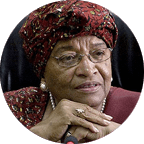Surgery in Africa
Surgery and medical help in Africa
Urgent humanitarian action: 5 billion human beings do not have sufficient access to essential surgical care. The humanitarian organization Mercy Ships uses hospital ships to provide more than 2,000 free surgeries and 8,000 dental treatments each year to those who do not have access to them in developing countries.
Our expertise: surgery in Africa
Low density of hospitals, insufficient equipment, lack of specialists and high costs: for many people in sub-Saharan Africa, it is almost impossible to benefit from surgical treatment. Yet, without treatment, surgical disease, injury, or deformity can lead to premature death or lifelong disabilities. It is estimated that 18 million people die each year from conditions that could have been treated with surgery. The lack of surgical care thus claims more victims than tuberculosis, malaria and HIV/AIDS combined. Since 1990, Mercy Ships has focused most of its humanitarian aid on the African continent. By deploying the largest civilian hospital ships in the world, the Africa Mercy and the Global Mercy, Mercy Ships works with host countries to help them improve their health systems.

Surgical and medical care
Dental / Oral health
Mercy Ships aims to prevent and reduce the effects of a lack of oral healthcare by providing dental treatment and dental hygiene education and training.
Gynecologic surgery
Support and medical care is provided for women who have suffered childbirth injuries. We provide extremely specialised surgery, continuing the recovery process through education and social activities.
Palliative care
Palliative care is an approach that improves the quality of life of patients and their families facing the difficulties associated with life-threatening illness.
Plastic Reconstructive Surgery
Birth defects, burns and illness often cause deformities we correct through surgeries; including burn-scar contractures, benign tumours, chronic ulcers, combined fingers and many others.
Orthopedic programme
Mercy Ships trains local surgeons in Ponseti casting, the “universal standard” in non-invasive clubfoot correction, and provides free surgical intervention for musculoskeletal conditions, neglected orthopaedic trauma and joint diseases. To help maintain correction, Mercy Ships provides physical therapy onboard and also trains local partners in how to manufacture braces.
Maxillofacial Surgery
Through corrective and reconstructive maxillofacial surgeries, our surgeons relieve deformities caused by physical conditions such as tumours, cleft lip, cleft palate and noma.
General Surgery
Our surgeons reduce the effects of neglected trauma, disease and congenital conditions by providing general surgeries for conditions such as hernias and goiters.
Ophthalmic care
Our ophthalmic surgeons perform free cataract operations, restoring sight to the blind. Additionally, doctors correct pterygium, strabismus and eyelid deformities and replace painful or disfiguring blind eyes with prostheses. In addition, Mercy Ships trains local surgeons and healthcare professionals, building the capacity of the national eye care system.
The importance of surgery in Africa
While the global surgical crisis goes unnoticed in public opinion, scientific circles and experts are very aware of it. In recent years, several commissions and associations have been created to focus on global surgery as a specific challenge. In 2015, the World Health Assembly (WHO) clarified in a resolution that surgery is also part of universal health care. The 17 Sustainable Development Goals of the United Nations therefore include, in their objective 3 “Health and well-being”, surgical care which must be accessible to all. Mercy Ships aims to meet this challenge using hospital ships. Health professionals provide specialized surgical care to the most disadvantaged populations. Mercy Ships also supports sustainable development through medical training programs and health infrastructure renovations, with the aim of improving surgery in Africa and the health systems of the countries visited. Mercy Ships always visits a country at the invitation of the government: before the ship arrives, we work with the local Ministry of Health to define what the needs are and to what extent we are able to support, reinforce and contribute to improve the health system. Our goal is that one day, the countries we serve no longer need us and become, in turn, bearers of hope and healing!
Houley's story
Comprehensive help: much more than surgery
Mercy Ships offers its patients more than just surgical care. Dental care teams, Ponseti clubfoot care teams, African chaplains and a palliative care team allow us to offer holistic and comprehensive help. After the operations on board our hospital ship, our patients benefit, if necessary, from physiotherapeutic follow-up in order to recover or regain full functional capacity. Physiotherapy takes place in one of the tents set up at the quay. For the duration of the rehabilitation process, the patients and their relatives are housed in the “HOPE Center”, the hospital’s onshore extension.
Le "HOPE Center"
Patients living near the port can easily get to the ship, but others further afield often have to overcome significant obstacles. For example, they must be able to pay travel and accommodation costs, which prevents some patients from receiving the help they need. To enable patients to receive treatment despite these difficulties, Mercy Ships is setting up shore extensions of the on-board hospital, the HOPE Centers, in an easily accessible location near the ship. Some of the patients can be accommodated there, which saves them having to make multiple trips. In addition, it reduces the stress of traveling after an operation. Before the date of the operation, patients arrive there and receive first aid, as well as healthy and nutritious food, intended to give them strength for the upcoming operation. For patients who have undergone surgery, a HOPE Center provides a protected and clean environment for rapid recovery. During the recovery phase, it is not always necessary to constantly go to a hospital ward, so postoperative care can be provided in the HOPE Center. It also saves valuable bed space on the boat.
Lives Changed: Our Surgical Patients
Story of Umu
“I was afraid to see the tumor on her face,” Yei remembered about the day she gave birth and saw Umu for the first time.
Story of Samba
After enduring 56 years of hardship and exclusion, a mere two hours proved transformative, radically reshaping Samba's life and bestowing upon him a newfound sense of dignity.
Story of Astou
Two surgeries for Astou Meet Astou. Her life has had shadows of pain. When she was 20 years old, she lost her son during childbirth, but that wasn’t the only
Story of Daouda
What started as a small lump eventually developed into a massive growth filling his mouth, making eating and talking difficult.
Story of Amadou
Amadou was the very first patient to recieve a free surgery on the Global Mercy.
Story of Khoudia
Khoudia had lost all hope:no local hospital was able to perform the surgery she needed.



